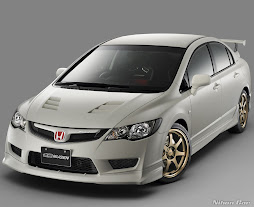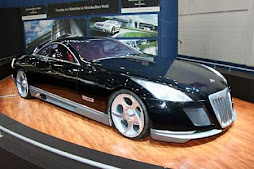West Frisian (Frysk) / English / German (Deutsch)
Les ien / Lesson one / Lektion ein
PYT: Goeie, Jan! Hello, Jan! / Hallo, Jan!
JAN: Goeie, Pyt! Hello, Pyt! / Hallo, Pyt!
P. Hoe is it mei dy? How are you? / Wie geht es dir?
J. Mei my giet it goed. I’m fine. / Mir geht es gut.
Les twa / Lesson two / Lektion zwei
PYT: De fyts is âld. The bicycle is old. / Das Fahrrad ist alt.
JAN: It hûs is nij. The house is new. / Das Haus ist neu.
P. De weinen binne ek nij. The cars are also new. / Die Autos sind auch neu.
J. Mar de ko is jong. But the cow is young. / Aber die Kuh ist jung.
P. De hûn is ek jong. The dog is also young. / Der Hund ist auch jung.
J. En de fytsen binne nij. And the bicycles are new. / Und die Fahrräder sind neu.
P. Mar de jas is net nij. But the coat isn’t new. / Aber der Mantel is nicht neu.
Les trije / Lesson three / Lektion drei
PYT: Bist do noch boer? Are you still a farmer? / Bist du noch ein Bauer?
JAN: Ja, ik bin noch boer. En do ek? Yes, I’m still a farmer. Are you not? / Ja, ich bin immer noch ein Bauer. Bist du nicht?
P. Nee, ik haw no in winkel. No, now I have a shop. / Nein, nun habe ich ein Geschäft.
J. Dan hast do it drok. So you are busy. / Dann bist du geschäftigt.
Les fjouwer / Lesson four / Lektion vier
Adverb order:
In West Frisian
(1. place / 2. time / 3. manner)
In English
(1. manner / 2. place / 3. time)
In German
(1. time / 2. manner / 3. place)
PYT: Jim kinne hjir hjoed wol ite. You can eat well here today. Du kannst heute gut hier essen.
JAN: Mar past jim dat wol? But do you mean that well?
P. Ja wis, ús kast is fol. Of course, our cupboard is full. Gewiß, unser Schrank ist voll.
J. Tanke wol dan! Thank you very much! Danke schön denn!
P. Jim hawwe juster grif ek net sa folle hân. I’m sure you didn’t have so much yesterday. Du hast sicher gestern nicht zuviel gehabt!
J. Nee, mei sa 'n reis krijt men gau te min. No, mit such a journey one gets easily too little. Nein, mit so eine Reise bekommt man bald zu wenig.
Les fiif / Lesson five / Lektion fünf
PYT: Wolst do ek sûker yn 'e tee ha? Do you also want sugar in your tea? Möchtest du auch Zucker in der Tee?
JAN: Nee, tanke. No, thanks. Nein, danke.
.. Wat sille wy fierder dwaan? What else will we do? Werden wir noch etwas tun?
P. Wy geane aanst nei de buorren. We’ll go to the village center. Wir gehen bald in die Dorfmitte.
J. Dat liket my wol goed ta. It sounds very good. Es gefällt mir sehr.
P. Hjir is noch in hompke tsiis foar dy. A small piece of cheese is left here for you. Hier ist dir noch ein Stückchen.
J. Dêr kin ik wol sêd fan wurde. Then I can be satisfied. Da kan ich ganz satt sein.
Les seis / Lesson six / Lektion sechs
JAN: Geane de froulju mei ús? Will the women come along? Kommen die Frauen mit?
PYT: Nee, ik woe mar tegearre gean. No, I’d like only both of us to go. Nein, ich möchte nur uns beide dorthin.
J. Troch hokker doar moatte wy? Through which door we have to go? Durch welche Tür müssen wir gehen?
P. Wy kinne troch beide doarren. We can go through both doors. Wir können durch die beide gehen.
J. It reint in bytsje, it is wiet waar. It is raining a bit, it’s wet out there. Es regnet ein bisschen und es ist naß da draußen.
P. Wy kinne wol oer wat wiette, net? We can go in the wetness, can’t we? Wir können ja über diese Näße gehen, oder?
J. Ja, ik haw in goede pet op'e holle. Yes, I’m wearing a good cap. Ja, ich habe eine gute Schirmmütze auf.
P. En ik draach in tichte jas! And I’m wearing an water-proof coat! Und ich habe einen wasserdichten Mantel an!
Les sân / Lesson seven / Lektion sieben
PYT: Sjoch, de bern boartsje by skoalle. See, the children are playing at school. Sieh, die Kinder spielen in der Schule.
JAN: Se binne wakker oan it sjongen. They are singing intensely. Sie singen gerade tüchtig.
P. Ik tink dat se it mâl waar yn 'e holle hawwe. I think they are restless. Ich denke, dass sie unruhig sind.
J. Tink derom, der rint ien oer de wei. Attention! someone is walking on the way. Achtung! Es geht jemand auf dem Weg.
P. Dat gie mar krekt goed. That was pretty well. Das ist aber gut gewesen.
J. Sa, no hawwe wy dochs efkes fuort west. So, now we have been out for a while all the same. Dann haben wir dennoch einen Augenblick weggewesen.
Les acht / Lesson eight / Lektion acht
JAN: It is hjoed ús heit syn jierdei. The birthday of our father is today. Heute ist der Geburtstag unsers Vaters.
PYT: Lokwinske! Hoe âld wurdt er? Congratulations! How old will he turn? Herzliche Glückwunsch! Wie alt wird er werden?
J. Hy wurdt al fyftich jier. He’ll turn fifty years old. Er wird fünfzig Jahre alt werden.
P. No, sa âld is ús mem noch net. Well, our mother isn’t so old yet. Na ja, unser Mutter ist noch nicht so alt.
J. Hoe âld is dy dan? How old is she then? Wie alt ist sie denn?
P. Se is noch mar acht en fjirtich. She is still fourty-eight. Sie ist noch nur achtundvierzig.
J. Dan is jim mem âlder as uzes. Then your mother is older than ours. Dann ist deine Mutter älter als unsere.
P. Wannear is jim mem har jierdei dan? When will your mother’s birthbay be? Wann ist denn der Geburtstag deiner Mutter?
J. Nije wike sneon. Next week on Saturday. Nächste Woche, am Samstag
P. Dan hawwe jim gau wer in feest! So you’ll have soon another party! Dan hast du wieder bald noch ein Fest!
Marlon muebeitoa yu ajue beisie.
Let's learn a foreign language!
Mostrando postagens com marcador frísio. Mostrar todas as postagens
Mostrando postagens com marcador frísio. Mostrar todas as postagens
quinta-feira, 28 de maio de 2009
Assinar:
Postagens (Atom)















